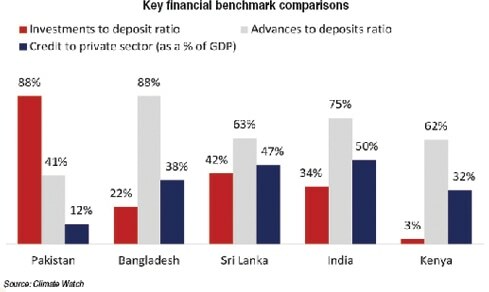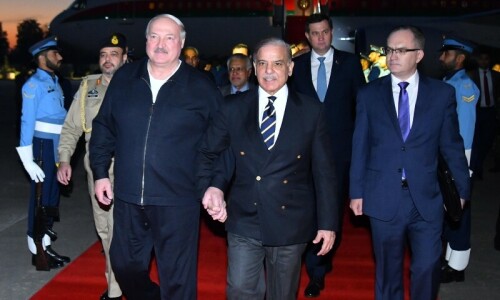
KAMPALA: Ugandan President Yoweri Museveni once said leaders who “overstayed” in power were the root of Africa’s problems, but 30 years later he has been elected for a fifth term.
The veteran former rebel leader seized power in 1986, ending years of brutal and murderous rule under Idi Amin and Milton Obote.
“Those who say, ‘let him go, let him go’, they need to know that this is not the right time,” Museveni said before the elections. “This old man who has saved the country, how do you want him to go? How can I go out of a banana plantation I have planted that has started bearing fruits?”
Museveni successfully changed the constitution in 2005 abolishing a two-term limit.
Other African leaders have since followed suit, changing or redefining laws to stay in power.
Museveni is officially 71, although activists have previously accused him of lying about his age to circumvent the country’s laws imposing an age limit of 75 on presidential candidates.
This will, therefore, be his last term in power, unless another change is made.
But Museveni has made clear he has no intention of handing power to anybody, dismissing criticism from western donors over graft and moves to grant sweeping powers to regulate civil society groups and non-governmental organisations.
He has also shrugged off criticism of a tough anti-homosexuality law, later overturned on a technicality.
Wily and tenacious
Now entering his fourth decade in power, Museveni remains one of Africa’s most wily and tenacious rulers.
He studied in Dar es Salaam, Tanzania, in the 1960s when the university acted as a kind of revolutionary finishing school for anti-colonialists.
His wife Janet is a devout Christian, MP and cabinet minister, but it is their 41-year-old son Muhoozi Kainerugaba, head of the elite Special Forces Command, who many believe is being groomed for succession.
The economy has ticked over but has never taken off, partly due to the corruption permitted as part of a system of political patronage that keeps Museveni in power. The promise of oil wealth from crude discovered beneath Lake Albert has yet to be realised.
Museveni has welded state and party and undermined political opposition so effectively that any serious challenge to either him or his National Resistance Movement (NRM) is impossible.
A proud former military man, much of his authority still rests on his sway over the army which he uses to maintain control domestically and project power regionally.
During Democratic Republic of Congo’s regional war between 1998-2003, Ugandan soldiers fought with their Rwandan allies.
More recently Ugandan troops were instrumental in preventing a rebel takeover of the South Sudan capital, Juba, and shoring up Salva Kiir’s government after civil war began in late 2013.
Military might
Uganda’s intervention in Somalia has been more warmly welcomed with its troops forming the backbone of an African Union mission that has battled the Al Qaeda-linked militants of Shebab since 2007.
The Somalia intervention — unlike those in Congo and South Sudan —has won Museveni favour with foreign donors who in return give him a pass when it comes to domestic oppression and corruption.
“His actions may not always be approved, but he has made Uganda a serious player in the region,” said Magnus Taylor, from the International Crisis Group (ICG) think tank.
“While Uganda’s drift towards authoritarianism, coupled with the high-profile introduction of legislation to criminalise homosexuality and regulate the operational environment for NGOs may not win approval from western actors, Museveni has embedded himself to the extent that the internationals accept his military contributions with one hand whilst wagging a censorious finger with the other,” Taylor said.
Museveni, born in Rwakitura in western Uganda to a cattle-herding family, has always said he looks forward to retiring to be a cattle keeper.
He specialises in rambling speeches peppered with folksy parables and military references that play better among poor — and poorly-educated — rural folk than among the urban population where the opposition finds its strongest support.
But Uganda remains a predominantly rural country, in both demography and economy, and Museveni’s popularity there is still high.
Published in Dawn, February 21st, 2016












































Dear visitor, the comments section is undergoing an overhaul and will return soon.